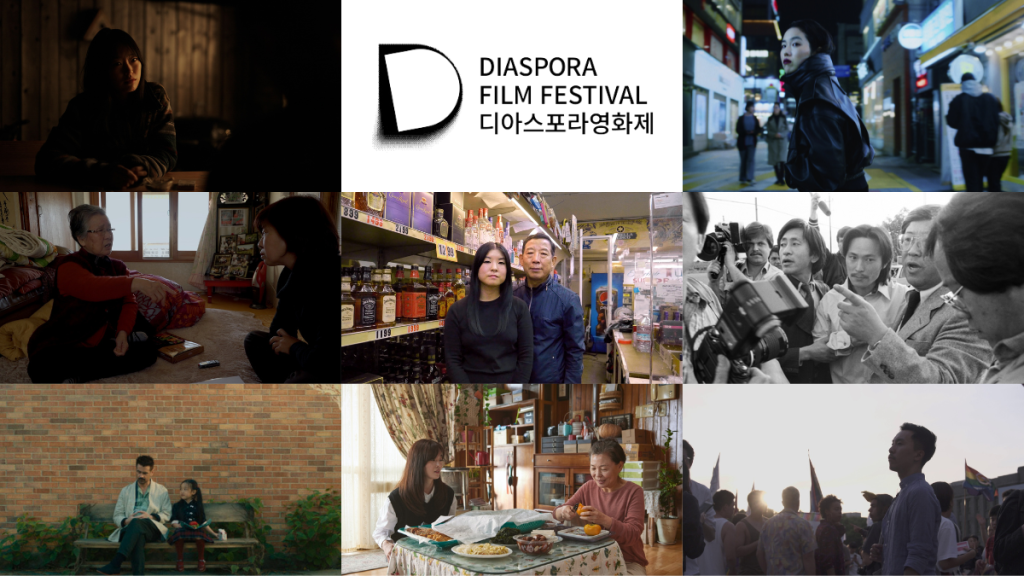
These are twelve films you shouldn’t miss at the Diaspora Film Festival which will take place from May 19 – 23, 2023 at the Incheon Art Platform, Korea.
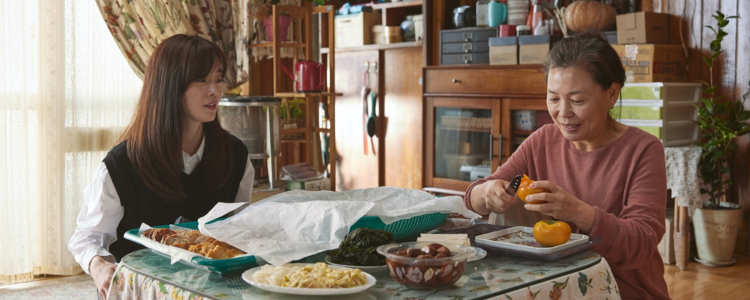
The eldest, Hye-jin is a person who can’t leave. As a breadwinner, she can’t leave Youngdo to support her family, nor can she refuse to work on weekends. The second, Hye-young is the one who had left. She left for Seoul dreaming of becoming a writer, but she is not satisfied with her career as a broadcasting writer. The third, Hye-joo is the one who wants to leave. She can’t leave because she’s still a student, but someday she wants to leave Youngdo and dance freely like Hye-young. The mother, Hwa-ja is the one who left. Born to a Korean father and a Japanese mother, she left her mother’s homeland on a stowaway ship late at night and came to her father’s homeland, Korea. These four women’s lives, which are intertwined with invisible patriarchal power, begin to change by a letter. The relativity of the word “leave” eventually connects time, place, and people. Therefore, no one has left as long as they miss each other anytime and anywhere. (KI Hyungmin)
Trailer:
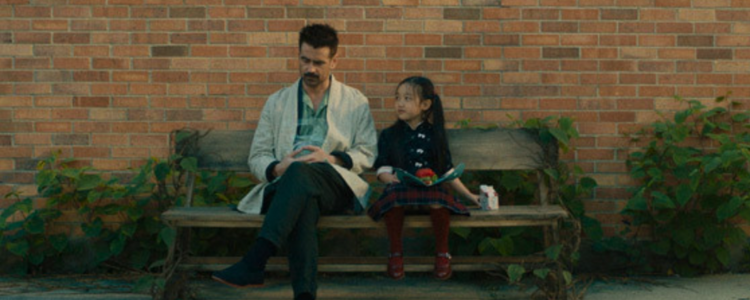
Jake and Kyra buy their adopted daughter Mika an android called ‘Yang,’ so that she can adapt easily to the new environment without being disconnected to her Chinese heritage. Mika treats Yang as a brother and follows him everywhere, and Yang becomes no less than a family member. One day, Yang malfunctions, and the family searches for a way to fix him. Not discouraged by the repair shop’s diagnosis that Yang should be either replaced with a new one or recycled, Jake keeps on and discovers a special memory bank inside Yang’s body and begins to explore his memories.
Trailer:
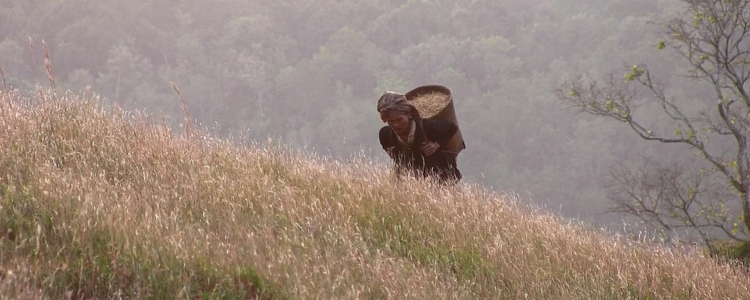
The fourth film of the People’s World History Decalogy project by the family-run documentary film production house, Company Sanggune. After projects related to the Bosnian war and gypsies suspended due to COVID-19, the director looks back at the past footage. From No Name Stars, featuring the pro-democracy movement and the citizens of Gwangju, Wellang Trei, featuring Cambodian civil war and Bunong people, to All Live, Olive, featuring Israeli-Palestinian conflict and refugees, through this Sanggune’s journey over the past decade, the director newly discovered the story of women and families in the footage. The stories of women from four countries resemble each other, who were unintentionally swept away by flows of the time but did not give up their lives like grass roots. Sanggune also talks about honest thoughts of work, travel and labor. Unexpected commas change into exclamation points through question marks. (KI Hyungmin)
Trailer:
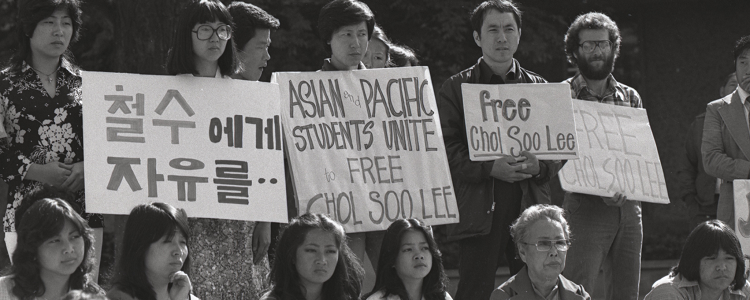
A documentary film that has been gaining attention due to the increase in Asian hate crimes since COVID-19. The film focuses on the social movement calling for the release of Lee Chol Soo, who was falsely accused of murder in a gang incident in San Francisco’s Chinatown in 1973. After spending more than a decade in prison, he was finally released and his life has changed since then. The “Loner Korean” Lee Chol Soo became a symbol of inequality and discrimination among Asian Americans along with the universality of his name “Chol Soo,” the most common name in Korea, born on Liberation Day. As a teenager, he had difficulty adjusting to life in the U.S. After a great ordeal, he tries to live a new life as a representative of his identity as a Korean-American and immigrant with the help of sponsors and supporters. However, as someone put it, “he chose to die,” he may actually have been cast into an unwanted role that doesn’t fit his entire life, and he may be tired of living “so many lifetimes in those short years” just to play his part. Has middle-aged Lee Chol Soo, who always asked, “Are you proud of me now?”, finally found freedom? (JUNG Jieun)
Trailer:
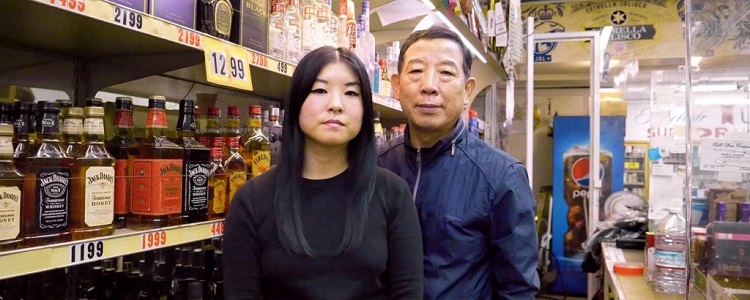
Koreans who have left for the United States in search of hope since the 1960s owned 75 percent of liquor stores in the southern part of Los Angeles, and created a new community. Second-generation Korean-American “liquor store babies” born and raised here feel trapped in the past without overcoming the trauma of the LA riots in the 1990s and are worried about becoming “unwanted” and being trapped in their parents’ stores without feeling belonging anywhere in Korea and the United States. Instead of expressing these individual concerns, the director conveys the struggle of those who seek possibilities through changes in American society, such as the “Black Lives Matter movement” and COVID-19. The joint street ritual ceremony of black and Korean immigrant ancestors who were victims of racism seems to show the future of the two communities, which have an unhealed history of conflict but have to help each other. A humorous dance of a father and a daughter, and a mother and a son at the end of the film, which is reminiscent of the opening of the TV series Pachinko, will remind audiences of the director’s words, “most importantly, keep dreaming.” (JUNG Jieun)
Trailer:
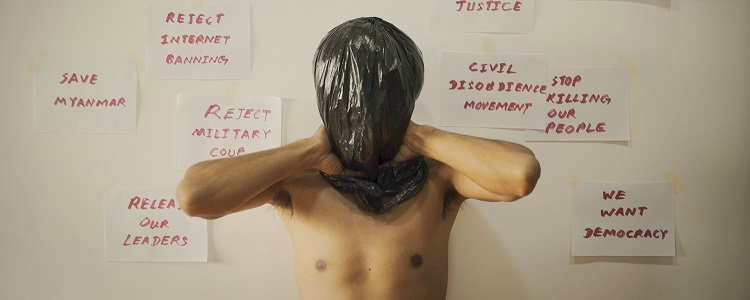
In Myanmar, where more than 3,000 civilians have died, and tens of thousands of people have become migrants since the military coup in 2021, voices are consistently raised by Myanmar people for democracy and calling for support and international attention. Myanmar Diaries is one of them, and is a documentary that captures life in Myanmar after the coup in a juxtaposition of intense situations shot on a smartphone and dramatic reenactment. From the first scene, the surreal contrast of numerous military vehicles entering the Congress behind aerobic instructors dancing to energetic music shows the precarious daily life in Myanmar that will change after the military coup. The film accuses military oppression of arbitrary arrest, gunfires, and assault with shaky cam on the smartphone’s vertical screen while expressing frustrated dreams, broken relationships, trauma of violence, guilt, and isolation through metaphorical images. (KIM Seon-myeong)
Trailer:
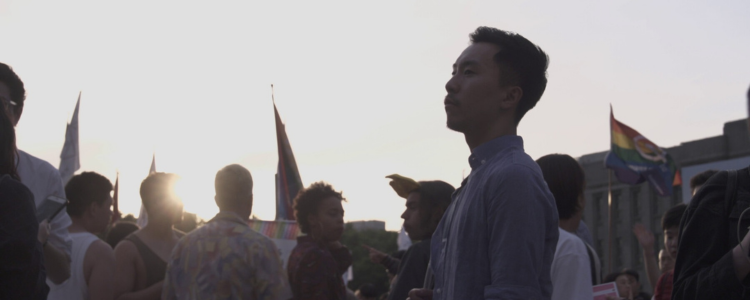
Director Seo Ah-hyun, who lives as a Christian, heterosexual, and cisgender woman in Korea, accompanies and records Kang-won, who lives on the border between Korea and the United States as a Christian, gay, and cisgender man. In Korea, gay men are firstly recognized in their biological sex, ‘male,’ before their sexual identity. The society which enforces gender stereotypes and roles, does not tolerate the process of realizing and accepting gay identity. In particular, the Christian ideology instills the roots of self-denial in LGBTQ people deeply and makes themselves suffer pain when they cross borders. The director carefully and patiently looks at Kang-won, who struggles to survive in a tragic reality. This seven years of gaze enlightening us to realize how difficult it is to understand and accept others near us. (LEE Dong-yun)
Trailer:
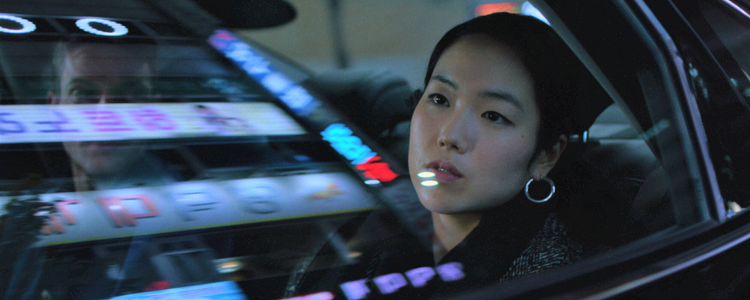
A sudden flight issue takes Freddie to Korea instead of her original destination, Japan. Until then, Korea has been nothing but a neighboring country to Japan or another option for a destination in a trip to Northeast Asia, though she has not forgotten the fact that this is the country from which she had been adopted to France and where her biological parents live. Since her first ‘accidental’ visit to the country, Freddie has come to Seoul every few years and changed to a very different person each time. As if she played different characters in different movies, her outfits, hairstyles, and the way she treats Korea and her biological parents vary little by little. Instead of highlighting the moment of ‘reunion’ and its spectacle along the way, the director Davy Chou tries to balance the theme of ‘overseas adoption’ and the character-based storyline by showing Freddie, onto the cinematic timeline, at different angles each time she ‘returns’ to Seoul. (HAHM Yeon-Sun)
Trailer:
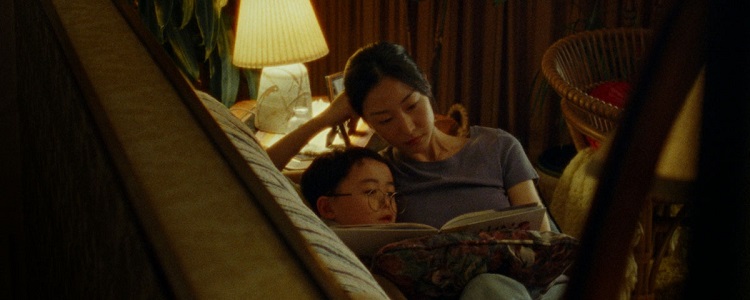
Even though the word ‘diaspora’ is currently used in a broader sense, it was originally used to explain the unique aspects of migrants who have retained some aspects of their home country’s lifestyle, while also adopting the identity of their new country. Anthony Shim’s Riceboy Sleeps is a story of a mother and a son who moved to Canada in the early 1990s, about 20 years after Korean immigration began in earnest. The desire to adopt the identity of the migrant population creates a conflict for Koreans who have already become familiar with K-culture before immigrating. Moreover, there is persistent, irrational hostility towards strangers. However, what offsets this cold gaze is a cliché (in a good way) that Riceboy Sleeps embodies in a way of “purifying” where characters affirm their position rather than using emotions to replace logical explanations. (PARK Ji Han)
Trailer:
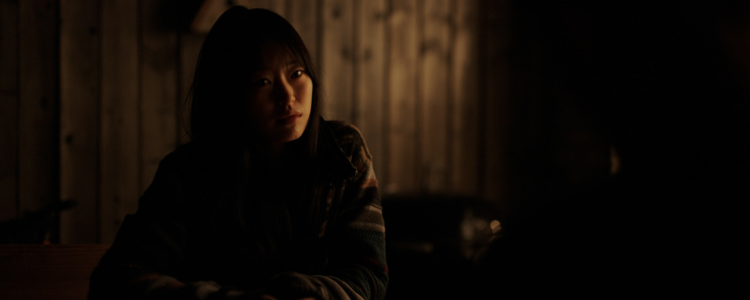
Part 1, London. Horim discovers a video of an unknown woman on a digital camcorder she picked up on the street. She then confronts her past lover Donghwan, his current lover Kyungseo, and their friend, Ewon ― the woman on the camcorder. A subtle atmosphere flows between four people magically gathered in one place. Part 2, Milan. Ewon reunites with a stranger who asked for directions and takes a walk on a throbbing night, but they eventually become separated on the seemingly endless road. The exotic scenery of The Continuing Land is not just a canvas of brief coincidences, but a wide and rich net of detailed emotions that flow, fluctuate, and continue. The possibility of more stories lurks through a rich chain of emotions that continues like the threads of a dream. From regrets for the past, longing, and loss for those who have left, to an indelible expectation, followed by loneliness and solitude. Long takes and long shots in the film, in particular, capture the lively movements of nature and waves of life, providing both fulfilling and beautiful moments. (JEONG Ji Hye)
Trailer:
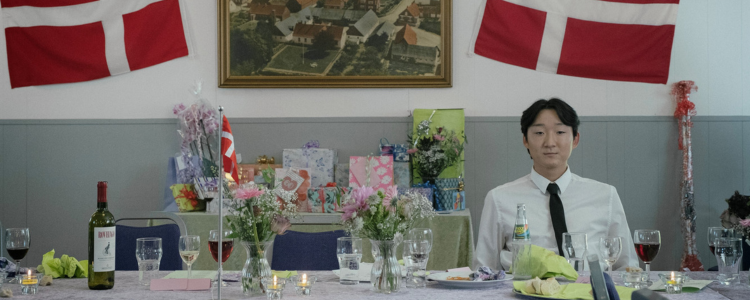
Carl, 19, is a Korean-Danish adopted by a rural Danish family dominated by white people. The film starts with capturing a vast farm landscape and a stone suddenly falling from the sky and forming a puddle. After returning home from school, Carl helps his parents work on the farm, and the old parents want him to take over the farm. Carl’s daily life in the film is calmly captured with realistic and observational eyes, but fantastic and surreal scenes are inserted in the middle. As if the stone struck in a tranquil natural landscape, the film depicts the existence and psychology of Carl across reality and fantasy, capturing his sense of isolation and anxiety. Additionally, the film demonstrates the quiet love of the family, and subtle distance between the family members that cannot reveal each other openly, and the heterogeneity within the community in a balanced and disciplined way. This film is not about a noisy and dramatic conflict, but of growth and tracking down the roots of “migration” quietly. Still, it is interesting that the quiet migration becomes noisy only in the Korea scenes. (LEE Seungmin)
Trailer:
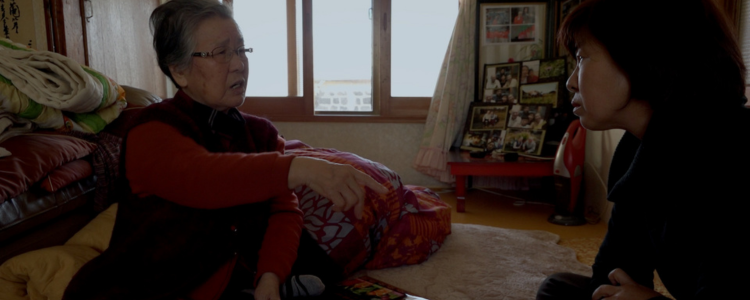
The wind blows and the waves crash on and on. The five women who experienced the 4.3 Incident in Jeju were just over 20 years old at the time, and now they are all in their nineties. Despite being acquitted through a retrial, no one can ever compensate for the hardships they went through during that time and their lives over the following 70 years. The film captures the memories of these women and weaves them into the current scenery of Jeju, portraying the poignant history of the island. The natural scenery flows indifferently over vivid memories, and oblivion flows over the ever-changing landscape. The long-standing scenery is also a place of events, and it serves to remind us of the power and limitations of human existence. Memories of a single moment are finite and fluid, but they awaken something within us that goes beyond the physical world. The director, Kim Kyungman, who has long been interested in rewriting history with old footage, pays attention to the current space and words. Like the film’s title implies, Until the stones speak. (LEE Seungmin)
For more information, please visit: https://www.diaff.org/eng/
Categories: News


